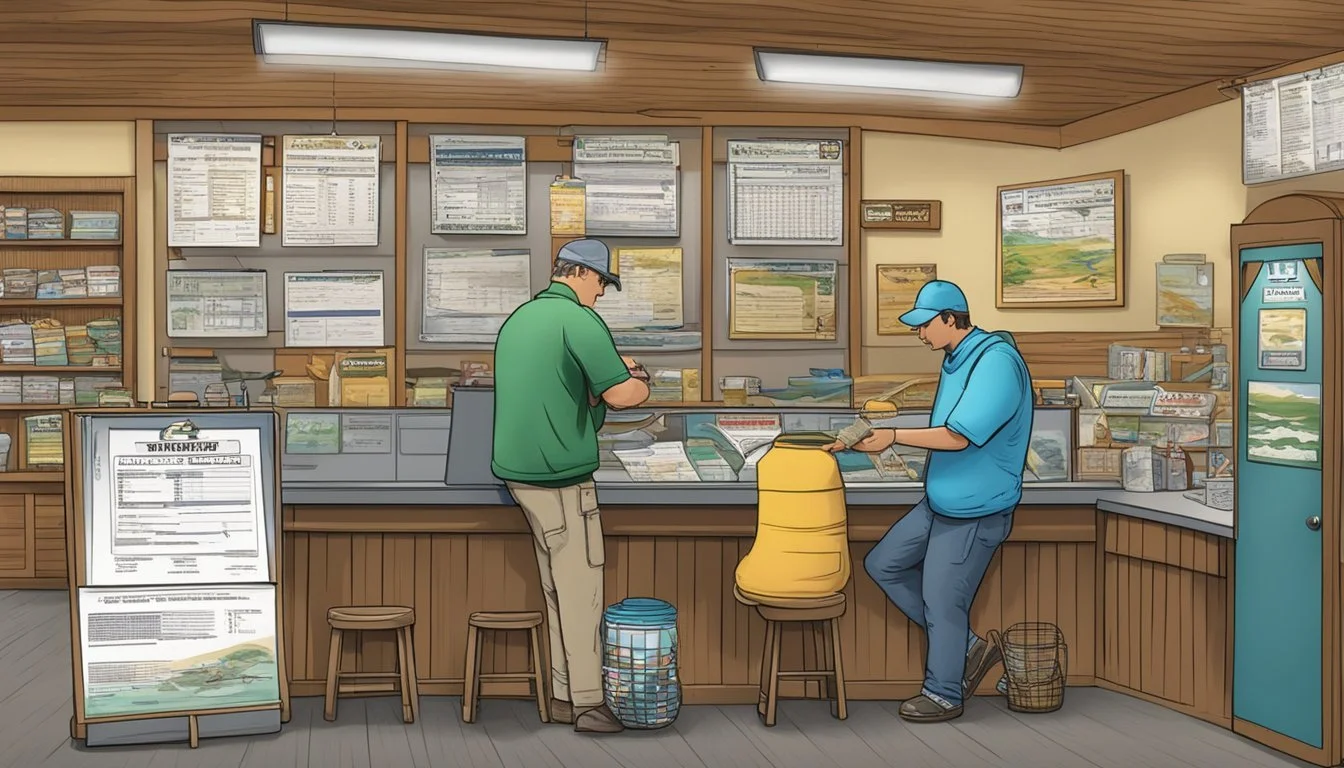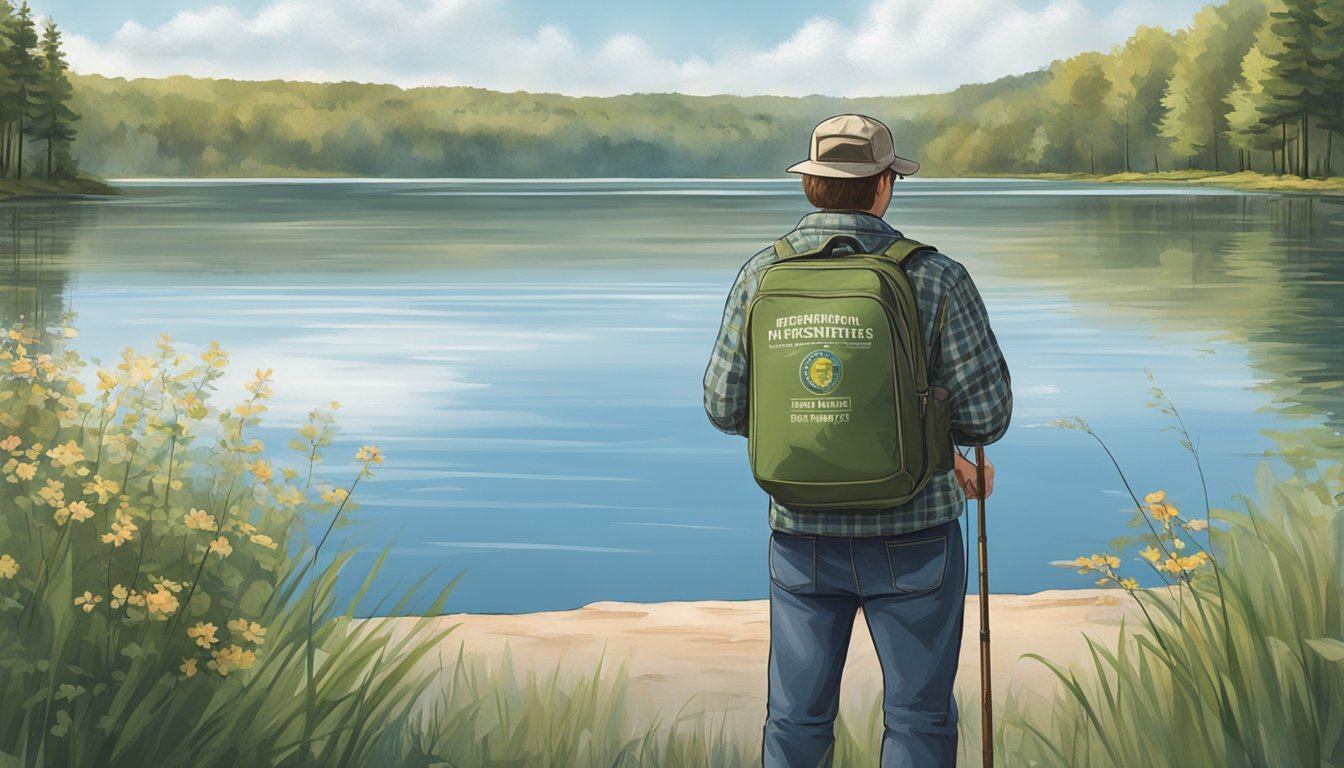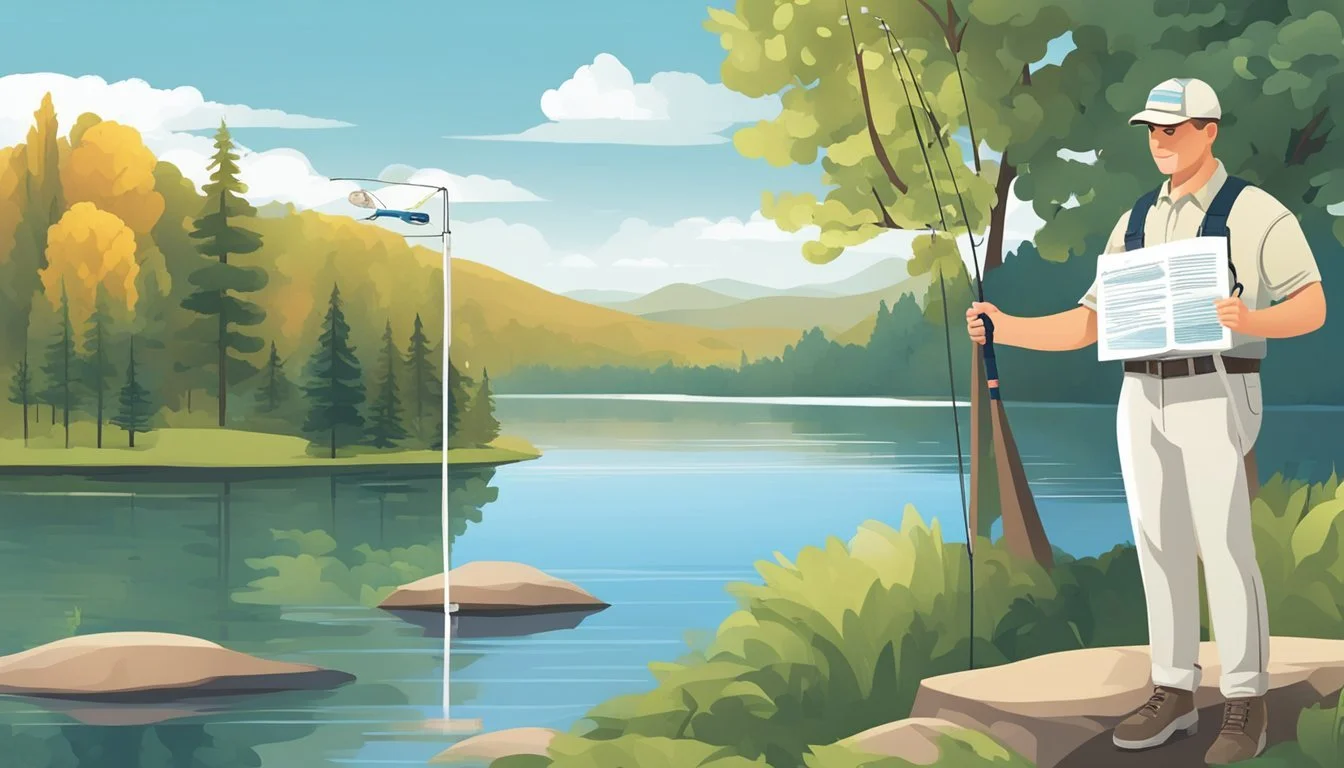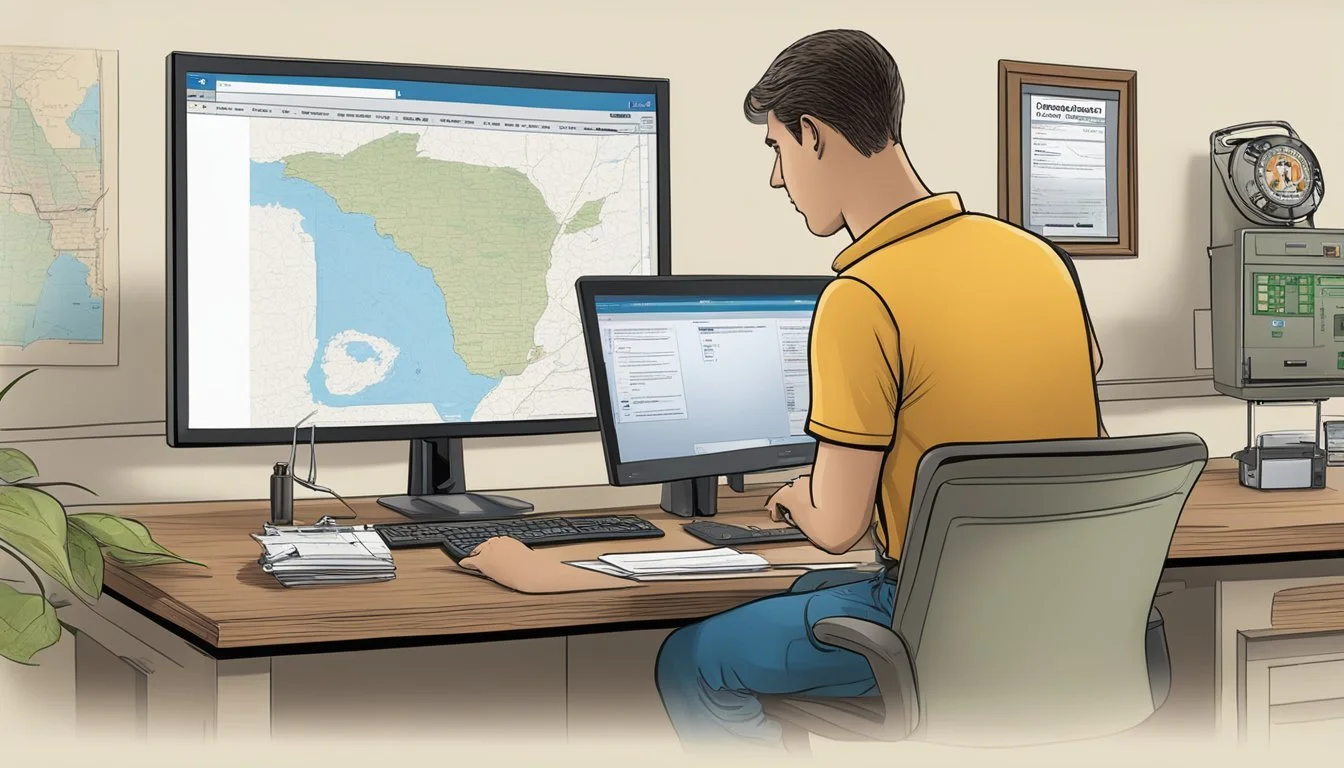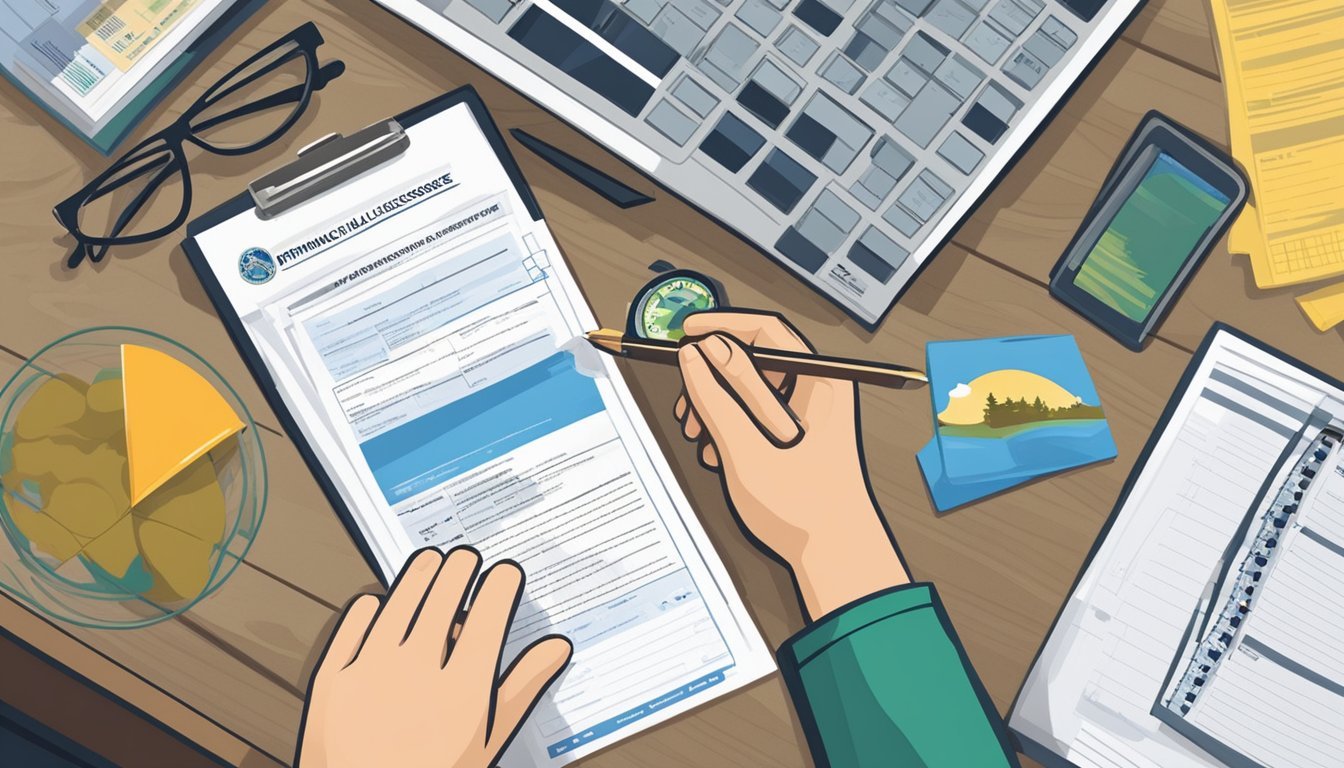How to Get a Wisconsin Freshwater Fishing License
Your Quick Guide
Securing a Wisconsin freshwater fishing license is an essential step for anglers looking to delve into the diverse and abundant waterways of the state. Whether one is a resident or visiting fisherman, Wisconsin’s Department of Natural Resources (DNR) offers a variety of licensing options to ensure compliance with state regulations while providing access to a rewarding fishing experience. The process of obtaining a license has been streamlined, enabling enthusiasts to quickly and easily gain the permission required to fish in Wisconsin's lakes, rivers, and streams.
For residents of Wisconsin, multiple license categories are tailored to accommodate individuals of different ages and circumstances. For example, children under the age of 16 and seniors born before 1927 can enjoy fishing without a license. This approach nurtures a sense of stewardship and tradition among the state's youth and honors the contributions of the older generations. Not only does it foster a culture of fishing within the state, but it also ensures that the joy of fishing is accessible to a wide demographic.
Non-resident anglers can also partake in Wisconsin's fishing offerings by obtaining a license specially designed for visitors. These licenses come in several durations—from a single day to an annual pass—offering flexibility to suit short visits and extended stays alike. In addition, first-time nonresident license buyers may be eligible for a discounted rate, encouraging newcomers to explore Wisconsin's freshwater fishing opportunities. With this structured system, anglers can confidently head out onto the water, knowing they have met the legal requirements to fish (What wine goes well with fish?) in Wisconsin.
Understanding Wisconsin Fishing Licenses
The intricate tapestry of Wisconsin's fishing licenses offers options tailored to a variety of anglers, whether residents or visitors. This section will carefully examine the license types available, the essentials of a freshwater fishing license, and the validity periods for each license classification.
Types of Wisconsin Fishing Licenses
Wisconsin provides several fishing license types to accommodate the diverse needs of anglers:
Resident General Fishing: Offered to Wisconsin residents.
Non-Resident Fishing License: For anglers not residing in Wisconsin.
First-Time Buyer License: A reduced-rate license for first-time purchasers or those returning after a 10-year hiatus.
Resident Miscellaneous Fishing: Includes options like a sturgeon fishing license.
2-Day Great Lakes Fishing: A short-term option for the Great Lakes.
2-Day Inland Lake Trout Fishing: Specifically for inland lake trout fishing over two days.
One-Day Fishing License: An option for both residents and non-residents, which can later be upgraded to an annual license.
Freshwater Fishing License
For anglers focused on freshwater angling in Wisconsin's lakes, rivers, and streams, the Resident Annual Fishing License or the Nonresident Annual License is fundamental. These licenses are designed for long-term fishing endeavors and give anglers access to a wide array of freshwater species.
License Validity Periods
Each Wisconsin fishing license has a defined period of validity:
Annual License: Valid from March 1 of the current year until March 31 of the following year.
First-Time Buyer License: This is an annual license, following the same validity as the regular annual license.
Short-Term Licenses (such as the one-day, 2-day Great Lakes, and 2-day inland lake trout licenses): Valid for the duration indicated, starting from the date of purchase.
Eligibility and Requirements
Obtaining a Wisconsin freshwater fishing license involves understanding the criteria for different groups, such as residents vs. nonresidents, and considering special provisions for veterans, people with disabilities, and youth.
Resident vs. Nonresident Licenses
Residents:
Must be a Wisconsin resident for at least 30 days.
Proof of residency is required, such as a WI driver's license or state ID.
Nonresidents:
Visitors or anyone who has not established residency in Wisconsin.
Nonresident licenses differ in cost from resident licenses.
Special Licenses for Veterans and Disabled Anglers
Veterans and disabled individuals may be eligible for reduced fees or special licensing.
Proof of status, like military or disability documentation, is required for these special licenses.
First-Time Buyers and Youth
First-time buyers may receive discounted licenses.
Kids 15 and under can fish (What wine goes well with fish?) without a license.
Residents born before 1927 do not require a license.
Anglers aged 16 and older need a license, even if they are fishing for the first time.
How to Purchase a Fishing License
When purchasing a fishing license in Wisconsin, anglers have two primary options: doing it online for convenience or visiting a Department of Natural Resources (DNR) service center. Both methods provide a straightforward path to obtaining a legal fishing license.
Online Purchasing Options
To purchase a fishing license online, individuals can visit the GoWild.wi.gov website. This platform requires the user's driver's license or social security number for identity verification. The steps to complete the purchase are simple:
Navigate to GoWild.wi.gov.
Follow the instructions to register or log in.
Select the type of fishing license required.
Complete the payment using a credit or debit card.
Print the license immediately, or opt to have it sent by mail.
Purchasing online is the most convenient way to buy a license, as it provides instant access to a printable copy of the license and can be done from anywhere with internet access.
In-Person at DNR Service Centers
For those who prefer or need to purchase a fishing license in person, DNR service centers are available throughout the state. Buyers can locate the nearest center by visiting the DNR's website. The in-person purchase typically involves the following:
Finding the nearest service center.
Falling in line and speaking with a DNR representative.
Providing a valid identification such as a driver's license.
Paying for the license with cash, credit, or debit card.
In-person purchases at DNR service centers can be beneficial for those seeking additional information or who have complex licensing needs that require the assistance of a representative.
Fishing License Costs
Wisconsin offers a variety of fishing licenses to suit the needs of individual anglers and families. Understanding the costs associated with these licenses allows fishers to choose the best option for their circumstances.
Standard Licensing Fees
For individual anglers, Wisconsin’s fishing license fees are categorized based on residency:
Residents: $20 annually
Non-residents: $50 annually
Special licenses, such as those for sturgeon spearing on Lake Winnebago, may have different fees associated with participation in the season.
Discounts and Free Licenses
Discounts are available for specific groups:
Youth (ages 16 and 17): Obtain licenses at reduced costs.
Senior citizens (65 and older): Eligible for reduced license fees.
The state also extends privileges to veterans and disabled individuals, who can receive licenses at discounted rates or, in some cases, for free.
Free licenses are available to:
Children 15 and under
Anglers born before 1927
Additionally, a Family Annual license exists, which allows for a discounted bundled rate for families looking to enjoy fishing together.
Additional Licenses and Stamps
When acquiring a Wisconsin freshwater fishing license, certain species such as trout, salmon, (What wine goes well with salmon?) and sturgeon, require additional licenses and stamps. These requirements apply to both residents and non-residents and are crucial for legal and responsible fishing practices.
Trout and Salmon Requirements
Wisconsin anglers targeting trout and salmon in inland waters must purchase an Inland Trout Stamp. Those fishing for trout or salmon in the Great Lakes need a Great Lakes Salmon/Trout Stamp. The stamps are mandatory alongside the basic fishing license and serve as a means to fund fishery management and habitat development.
Inland Trout Stamp
Residents: Must-have for trout fishing in inland waters.
Non-Residents: Equally required for non-resident anglers.
Great Lakes Salmon/Trout Stamp
Residents: Necessary for fishing salmon/trout in Great Lakes waters.
Non-Residents: Required for non-resident anglers fishing in these areas.
Sturgeon Spearing
For those wishing to participate in sturgeon spearing, Wisconsin offers a specialized season in select areas, such as Lake Winnebago and the upriver lakes. Spearers must have a resident sturgeon fishing license or a corresponding license for non-residents.
Upriver Lakes Sturgeon Spearing:
Application: Anglers must apply for a spearing license through a lottery due to limited tags.
Successful Applicants: Can participate in the spearing season on the Upriver Lakes.
Lake Winnebago System:
Open Season: A separate, open season; no lottery required, but a spearing license is still mandatory.
Resident and Non-Resident Requirements: Both must have their respective sturgeon spearing licenses to partake.
These additional licenses and stamps are considerations every angler should be aware of before setting out to fish in Wisconsin's diverse freshwater environments.
Understanding Fishing Regulations
Before one heads to Wisconsin's waters, it is imperative they familiarize themselves with the state's fishing regulations to ensure the conservation of fish populations and to adhere to established bag limits.
Catch and Size Limits
Wisconsin enforces specific catch and size limits to maintain healthy fish populations and ecosystems. For instance, the state stipulates a daily bag limit, which is the maximum number of fish an angler may harvest from a particular species in a single day. Additionally, size limits are put in place, dictating the legal dimensions of fish that can be kept—undersized fish must be released. These limits can vary by species and location, underlining the importance of verifying the regulations for one’s specific fishing area.
Seasonal Fishing Rules
The state also implements seasonal fishing rules to protect fish during critical periods such as spawning. Closed seasons prohibit fishing for certain species during specific times of the year. Open seasons designate when fishing is allowed, and these dates also can differ significantly between species and water bodies. Anglers should check the current year's fishing regulation guide provided by the Wisconsin Department of Natural Resources (DNR) for accurate dates and rules related to the fish they intend to catch.
Military and Leave Options
Wisconsin's Department of Natural Resources (DNR) provides specific fishing license options for active-duty military members and those on furlough or leave, recognizing their service and offering convenience and benefits tailored to their circumstances.
Active-Duty Military Licenses
Active-duty armed forces members who are residents of Wisconsin are eligible for certain privileges when it comes to fishing licenses. With the proper identification and documentation—specifically their military I.D. and evidence of active service—these individuals can take advantage of available benefits.
Free Licenses: They are entitled to a free Small Game & Fishing License, which includes state stamps.
Resident Rates: For other types of licenses not covered under the free offerings, active-duty military can purchase them at resident rates, regardless of their current stationed location.
Furlough and Leave Permits
For service members on furlough or leave, the Wisconsin DNR also extends special considerations. These are designed to ensure that during their time off from active duty, military personnel can enjoy fishing without the usual required fees or at a reduced cost.
Eligibility: Resident service members on furlough or leave. Proof, like leave papers, must be presented in conjunction with military I.D.
Benefits: Those eligible have access to a free fishing license, making it easier to take advantage of their time off.
These accommodations serve as a token of gratitude and support for the men and women serving in the armed forces, facilitating their enjoyment of Wisconsin's natural resources.
Plan Your Wisconsin Fishing Trip
When embarking on a Wisconsin fishing trip, anglers should pay attention to selecting appropriate fishing locations and acquiring the necessary licenses, especially when targeting specific fish species.
Choosing the Right Water Bodies
Wisconsin boasts a plethora of freshwater bodies, including over 15,000 lakes, 43,000 miles of rivers, and countless streams and ponds. Anglers should base their choice on the type of fish they are targeting and the fishing experience they seek.
Lakes: For a serene angling experience with opportunities for walleye, bass, and perch, Wisconsin's lakes offer extensive options.
Rivers and Streams: Enthusiasts seeking trout or sturgeon should consider the state's vibrant river systems. The legendary trout-filled streams of Michigan have counterparts in Wisconsin, known for their rich biodiversity.
Note: The water body chosen will dictate the lures and techniques required for a successful fishing trip.
Licensing for Special Fish
Wisconsin has specific licensing requirements for anglers looking to fish for trout or sturgeon.
Trout Stamp: A Trout Stamp is required in addition to the regular fishing license if one plans to fish for trout.
License Type Requirement Regular All anglers Trout Stamp Trout anglers
Sturgeon Fishing: Sturgeon fishing, a prized and regulated activity, requires a special tag and adherence to strict season regulations.
Caution: Always verify current regulations and season dates before planning your trip, as rules for fishing licenses and stamps can change.
By focusing on the above aspects, anglers can ensure a well-planned and legal fishing adventure in Wisconsin's abundant freshwater environments.
Support Resources and Contacts
When seeking assistance for obtaining a Wisconsin freshwater fishing license, individuals have reliable resources at their disposal. The Department of Natural Resources (DNR) provides direct support, while online platforms offer convenience and additional help.
DNR Service Center Information
For personalized assistance, the Wisconsin Department of Natural Resources operates service centers throughout the state. Individuals can visit these centers for direct support with obtaining a fishing license, learning about regulations, or addressing any questions. The DNR service centers are staffed with knowledgeable personnel who can guide one through the licensing process effectively.
Service Centers:
Contact Local DNR Service Centers: For locations and hours, visit the official DNR website or call their customer service hotline.
In-Person Support: Obtain licenses, seek help with regulations, and gain insights into local fishing opportunities.
Online Assistance
Wisconsin DNR has optimized their licensing services through the online platform, Go Wild. It's a one-stop-shop for purchasing fishing licenses, accessing fishing regulations, and reporting catches.
Go Wild Online Platform:
License Purchases: Secure a fishing license from the comfort of one's home or on-the-go.
Resourceful Information: Find all necessary fishing regulations and license options available.
Responsive Service: Utilize the helpdesk for any issues or inquiries about online services.
Individuals can easily navigate these resources to ensure a smooth process in obtaining their Wisconsin freshwater fishing license.
Fishing License FAQs
Who Needs a Fishing License in Wisconsin?
In Wisconsin, all anglers aged 16 and older must obtain a fishing license to fish in freshwater. This requirement applies to both resident and non-resident anglers. However, children under 15 can fish without a license, and those born before 1927 are also exempt.
What Types of Licenses are Available?
Resident Anglers:
Annual License
1-day or Short-term License
Senior Citizen License (discounted rates for those 65 and older)
Non-Residents:
Annual License
1-day or Short-term License
Family License (for parents and dependent children)
Can You Purchase a Wisconsin Fishing License Online?
Yes, anglers can conveniently purchase their fishing license online through the Wisconsin Department of Natural Resources (DNR) website. This option provides a quick and easy method to get a license without the need to visit a physical location.
What Other Methods are Available to Purchase a License?
Besides the online method, anglers can take the following routes:
In-Person: Visit a licensed retailer like a sporting goods store or tackle shop.
By Mail: Obtain a form from the DNR and send in a completed application.
Are There Free Fishing Days in Wisconsin?
Wisconsin offers free fishing weekends, typically once in winter and once in summer, wherein residents and non-residents can fish without a license. Dates may change yearly, and it’s prudent to check the DNR calendar for specifics.
Where Can You Get More Information?
The Wisconsin DNR website is a repository of details on freshwater fishing. It lists places to fish, boat launch locations, and provides updated information on fishing tournaments and the regulatory environment for angling in the state.

